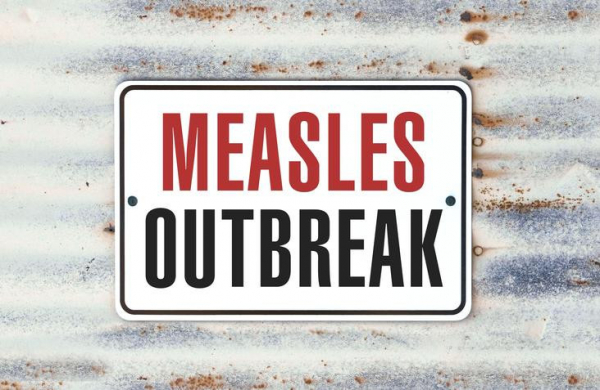
Are you getting health care you don’t need?

Ever wonder if every medical test or treatment you've taken was truly necessary? Or are you inclined to get every bit of health care you can? Maybe you feel good about getting the most out of your health insurance. Perhaps a neighborhood imaging center is advertising discounted screening tests, your employer offers health screens as a perk, or you're intrigued by ads touting supplements for a seemingly endless number of conditions.
But keep in mind: just because you could get a particular test or treatment or take a supplement doesn't mean you should. One study suggests that as much as 20% of all health care in the US is unneeded. In short: when it comes to health care, more is not always better.
Isn't it better to be proactive about your health?
We're all taught that knowledge is power. So it might seem reasonable to want to know as much as possible about how your body is working. And isn't it better to take action before there's a problem rather than waiting for one to develop? What's the harm of erring on the side of more rather than less?
The truth is that knowledge is not always power: if the information is irrelevant to your specific situation, redundant, or inaccurate, the knowledge gained through unnecessary health care can be unhelpful or even harmful. Unnecessary tests, treatments, and supplements come with risks, even when they seem harmless. And, of course, unnecessary care is not free — even if you're not paying a cent out of pocket, it drives up costs across health systems.
Screening tests, wellness strategies, and treatments to reconsider
Recommended screening tests, treatments, and supplements can be essential to good health. But when risks of harm outweigh benefits — or if proof of any benefit is lacking — think twice. Save your time, money, and effort for health care that is focused on the most important health threats and backed by evidence.
Cancer screening: When to stop?
Screening tests for some cancers are routinely recommended and can be lifesaving. But there's a reason they come with a recommended stop age. For instance, guidelines recommend that a person at average risk of colorectal cancer with previously normal colonoscopies stop having them once they turn 75. Similar limits apply to Pap smears (age 65) and mammograms (age 75). Studies suggest that beyond those ages, there is little benefit to continuing these screens.
Watch out for wellness marketing
Dietary supplements are a multibillion-dollar industry. And a whopping 70% or more of US adults take at least one, such as vitamin D, fish oil, or a multivitamin. People often consider them as insurance in case vital elements are missing from their diet, or they believe supplements can prevent dementia, heart disease, or another condition.
Yet little evidence supports a benefit of routine supplement use for everyone. While recent studies suggest a daily multivitamin might slow cognitive decline in older adults, there's no medical consensus that everyone should be taking a multivitamin. Fish oil (omega-3) supplements haven't proven to be as healthful as simply eating servings of fatty fish and other seafood low in toxic chemicals like mercury and PCBs. And the benefits of routinely taking vitamin D supplements remain unproven as well.
It's worth emphasizing that dietary supplements clearly provide significant benefit for some people, and may be recommended by your doctor accordingly. For example, if you have a vitamin or mineral deficiency or a condition like age-related macular degeneration, good evidence supports taking specific supplements.
Reconsider daily aspirin
Who should be taking low-dose aspirin regularly? Recommendations have changed in recent years, so this is worth revisiting with your health care team.
- Older recommendations favored daily low-dose aspirin to help prevent cardiovascular disease, including first instances of heart attack and stroke.
- New recommendations favor low-dose aspirin for people who've already experienced a heart attack, stroke, or other cardiovascular disease. Adults ages 40 to 59 who are at a high risk for these conditions and low risk for bleeding also may consider it.
Yet according to a recent study, nearly one-third of adults 60 and older without past cardiovascular disease take aspirin, despite evidence that it provides little benefit for those at average or low risk. Aspirin can cause stomach bleeding and raise risk for a certain type of stroke.
Weigh in on prostate cancer screening
Men hear about prostate cancer often. It's common, and the second leading cause of cancer deaths among men. But PSA blood tests and rectal exams to identify evidence of cancer in the prostate are no longer routinely recommended for men ages 55 to 69 by the United States Preventative Services Task Force.
The reason? Studies suggest that performing these tests does not reliably reduce suffering or prolong life. Nor do possible benefits offset downsides like false positives (test results that are abnormal despite the absence of cancer). That can lead to additional testing, some of which is invasive.
Current guidelines suggest making a shared decision with your doctor about whether to have PSA testing after reviewing the pros and cons. For men over age 70, no screening is recommended. Despite this, millions of men have PSA tests and rectal examinations routinely.
Not everyone needs heart tests
There are now more ways than ever to evaluate the health of your heart. But none are routinely recommended if you're at low risk and have no signs or symptoms of cardiovascular disease. That's right: in the absence of symptoms or a high risk of cardiovascular disease, it's generally safe to skip EKGs, stress tests, and other cardiac tests.
Yet many people have these tests as part of their routine care. Why is this a problem? Having these tests without a compelling reason comes with risks, especially false positive results that can lead to invasive testing and unneeded treatment.
Four more reasons to avoid unnecessary care
Besides the concerns mentioned already, there are other reasons to avoid unnecessary care, including:
- The discomfort or complications of testing. If you're needle-phobic, getting a blood test is a big deal. And while complications of noninvasive testing are rare (such as a skin infection from a blood test), they can occur.
- The anxiety associated with waiting to find out test results
- False reassurance that comes with false negatives (results that are normal or nearly so, suggesting no disease when disease is actually present)
- All treatments have side effects. Even minor reactions — like occasional nausea or constipation — seem unacceptable if there's no reason to expect benefit from treatment.
The bottom line
You may believe your doctor wants you to continue with your current schedule of tests and treatments, while they might think this is your preference! It's worth discussing if you haven't already, especially if you suspect you may be taking pills or getting tests you don't truly need.
If your doctor says you can safely skip certain tests, treatments, and supplements, it doesn't mean that he or she is neglecting your health or that you don't deserve great health care! It's likely that the balance of risks and benefits simply doesn't support doing these things.
Less unnecessary care could free up resources for those who need it most. And it could save you time, money, and unnecessary risks or side effects, thus improving your health. It's a good example of how less can truly be more.
About the Author

Robert H. Shmerling, MD, Senior Faculty Editor, Harvard Health Publishing; Editorial Advisory Board Member, Harvard Health Publishing
Dr. Robert H. Shmerling is the former clinical chief of the division of rheumatology at Beth Israel Deaconess Medical Center (BIDMC), and is a current member of the corresponding faculty in medicine at Harvard Medical School. … See Full Bio View all posts by Robert H. Shmerling, MD Share

Measles is making a comeback: Can we stop it?

Has the recent news about measles outbreaks in the US surprised you? Didn’t it seem like we were done with measles?
In the US, widespread vaccination halted the ongoing spread of measles more than 20 years ago, a major public health achievement. Before an effective vaccine was developed in the 1960s, nearly every child in the US got measles. Complications like measles-related pneumonia or hearing loss were common, and 400 to 500 people died each year.
As I write this, there have been 1,227 confirmed cases in 36 states, mostly among children. The biggest outbreak is in west Texas, where 97 people have been hospitalized and two unvaccinated school-age children recently died, the first measles deaths in the US since 2015. Officials in New Mexico have also reported a measles-related death.
Can we prevent these tragedies?
Measles outbreaks are highly preventable. It’s estimated that when 95% of people in a community are vaccinated, both those individuals and others in their community are protected against measles.
But nationally, measles vaccination rates among school-age kids fell from 95% in 2019 to 92% in 2023. Within Texas, the kindergarten vaccination rates have dipped below 95% in about half of all state counties. In the community at the center of the west Texas outbreak, the reported rate is 82%. Declining vaccination rates are common in other parts of the US, too, and that leaves many people vulnerable to measles infections.
Only 3% of the recent cases in the US involved people known to be fully vaccinated. The rest were either unvaccinated or had unknown vaccine status (95%), or they had received only one of the two vaccine doses (2%).
What to know about measles
As measles outbreaks occur within more communities, it’s important to understand why this happens — and how to stop it. Here are seven things to know about measles.
The measles virus is highly contagious
Several communities have suffered outbreaks in recent years. The measles virus readily spreads from person to person through the air we breathe. It can linger in the air for hours after a sneeze or cough. Estimates suggest nine out of 10 nonimmune people exposed to measles will become infected. Measles is far more contagious than the flu, COVID-19, or even Ebola.
Early diagnosis is challenging
It usually takes seven to 14 days for symptoms to show up once a person gets infected. Common early symptoms — fever, cough, runny nose — are similar to other viral infections such as colds or flu. A few days into the illness, painless, tiny white spots in the mouth (called Koplik spots) appear. But they’re easy to miss, and are absent in many cases. A day or two later, a distinctive skin rash develops.
Unfortunately, a person with measles is highly contagious for days before the Koplik spots or skin rash appear. Very often, others have been exposed by the time measles is diagnosed and precautions are taken.
Measles can be serious and even fatal
Measles is not just another cold. A host of complications can develop, including
- brain inflammation (encephalitis), which can lead to seizures, hearing loss, or intellectual disability
- pneumonia
- eye inflammation (and occasionally, vision loss)
- poor pregnancy outcomes, such as miscarriage
- subacute sclerosing panencephalitis (SSPE), a rare and lethal disease of the brain that can develop years after the initial measles infection.
Complications are most common among children under age 5, adults over age 20, pregnant women, and people with an impaired immune system. Measles is fatal in up to three of every 1,000 cases.
During the latest outbreaks, 148 cases — about one in eight — have required hospitalization.
Getting measles may suppress your immune system
When you get sick from a viral or bacterial infection, antibodies created by your immune system will later recognize and help mount a defense against these intruders. In 2019, a study at Harvard Medical School (HMS) found that the measles virus may wipe out up to three-quarters of antibodies protecting against viruses or bacteria that a child was previously immune to — anything from strains of the flu to herpesvirus to bacteria that cause pneumonia and skin infections.
“If your child gets the measles and then gets pneumonia two years later, you wouldn’t necessarily tie the two together. The symptoms of measles itself may be only the tip of the iceberg,” said the study’s first author, Dr. Michael Mina, who was a postdoctoral researcher in the laboratory of geneticist Stephen Elledge at HMS and Brigham and Women’s Hospital at the time of the study.
In this video, Mina and Elledge discuss their findings.
Vaccination is highly effective
Two doses of the current vaccine provide 97% protection — much higher than most other vaccines. Rarely, a person gets measles despite being fully vaccinated. When that happens, the disease tends to be milder and less likely to spread to others.
The measles vaccine is safe
The safety profile of the measles vaccine is excellent. Common side effects include temporary soreness in the arm, low-grade fever, and muscle pain, as is true for most vaccinations. A suggestion that measles or other vaccines cause autism has been convincingly discredited. However, this often-repeated misinformation has contributed to significant vaccine hesitancy and falling rates of vaccination.
Ways to protect yourself from measles infection
- Vaccination. Usually, children are given the first dose around age 1 and the second between ages 4 and 6 as part of the Measles-Mumps-Rubella (MMR) vaccine. If a child — or adult — hasn’t been vaccinated, they can have these doses later.
If you were born after 1957 and received a measles vaccination before 1968, consider getting revaccinated or tested for measles antibodies (see below). The vaccine given before 1968 was less effective than later versions. And before 1957, most people became immune after having measles, although this immunity can wane.
- Isolation. To limit spread, everyone diagnosed with measles and anyone who might be infected should avoid close contact with others until four days after the rash resolves.
- Mask-wearing by people with measles can help prevent spread to others. Household members or other close contacts should also wear a mask to avoid getting it.
- Frequent handwashing helps keep the virus from spreading.
- Testing. If you aren’t sure about your measles vaccination history or whether you may be vulnerable to infection, consider having a blood test to find out if you’re immune to measles. Memories about past vaccinations can be unreliable, especially if decades have gone by, and immunity can wane.
- Pre-travel planning. If you are headed to a place where measles is common, make sure you are up to date with vaccinations.
The bottom line
While news about measles in recent months may have been a surprise, it’s also alarming. Experts warn that the number of cases (and possibly deaths) are likely to increase. And due to falling vaccination rates, outbreaks are bound to keep occurring. One study estimates that between nine and 15 million children in the US could be susceptible to measles.
But there’s also good news: we know that measles outbreaks can be contained and the disease itself can be eliminated. Learn how to protect yourself and your family. Engage respectfully with people who are vaccine hesitant: share what you’ve learned from reliable sources about the disease, especially about the well-established safety of vaccination.
About the Author

Robert H. Shmerling, MD, Senior Faculty Editor, Harvard Health Publishing; Editorial Advisory Board Member, Harvard Health Publishing
Dr. Robert H. Shmerling is the former clinical chief of the division of rheumatology at Beth Israel Deaconess Medical Center (BIDMC), and is a current member of the corresponding faculty in medicine at Harvard Medical School. … See Full Bio View all posts by Robert H. Shmerling, MD Share